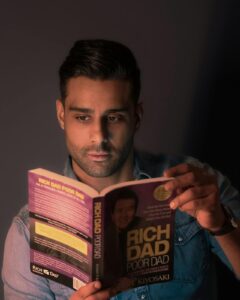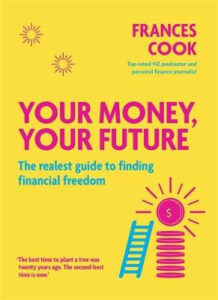
Your Money Your Responsibility
Written by R. A. Stewart
Your money is your responsibility. It is your choice what you do with it once it becomes yours, but you have the responsibility of how you manage your money. Being a good steward of money means being responsible for how you use it. This requires maturity.
Here are the main factors which will help you become a good steward of money.
- Gaining a financial education
It is your responsibility to become financially literate. In this day and age where there is so much information available on making the most of your money, it is inexcusable to be financially literate.
All it may take for you to find books on personal finance is to just visit your local library. If you are prepared to spend a bit of money then you may find some good books at your local bookstore.
Frances Cook, Mary Holm, and Martin Hawes are excellent New Zealand authors of Financial books.

- Make your own decisions
Some people will get others to make decisions on their behalf, so that whenever something goes wrong they always have someone to blame. “You told me to invest in such and such company and now I have lost my money.” It is your money so that it is your responsibility to make the most of it.
- Accept your own mistakes
Investing is a learning process. In order to become a good investor you need to invest and gain experience doing so. Mistakes will be made. The important thing is to learn from them and move on.
- Living within your means.
It is your responsibility to live within your means. This means that if you choose to get married, have kids, or buy a car, then it is your responsibility to ensure that you are in a suitable financial position to do these things.
- Pay all of your bills
Everyone has fixed costs such as utilities, phones, and whatever. It is the responsibility and the mature thing to pay all of these on time. A bad credit rating can hurt your chances of obtaining a mortgage in the future.
- Save a portion of your income
It is your responsibility to save a portion of your income to provide some kind of cushion for a future financial setback. Establishing a rainy day fund is always suggested by financial experts.
- Listen to wise advice
The markets went up and down and they were all down after President Trump announced tariffs on overseas imports to the US. The experts in New Zealand were advising investors to remain calm during this time and not to react to the market slide by changing funds. “This is the nature of the markets,” they said. Many did change funds and when the markets recovered the losses, these people missed out on the gains. As a result, their kiwisaver balances took a hit.
Your financial plan has to take into consideration the market volatility. The question is, “If the market dropped 5% or whatever, how will this affect my lifestyle?”
If you have ten or so years remaining till you retire then the answer is that it won’t in the short or medium term.
It is your responsibility to heed advice when it is given but at the same time have the common sense to know whether the advice is good or bad.
Once you have gained enough experience at investing you will have the know how to discern whether advice is good or bad and what the motive is behind the person giving the advice.
About this article: The opinions expressed are those of the writer and may not be applicable to your personal circumstances therefore discretion is advised. You may use this article as content for your blog/website or ebook.
Read my other articles at www.robertastewart.com





























